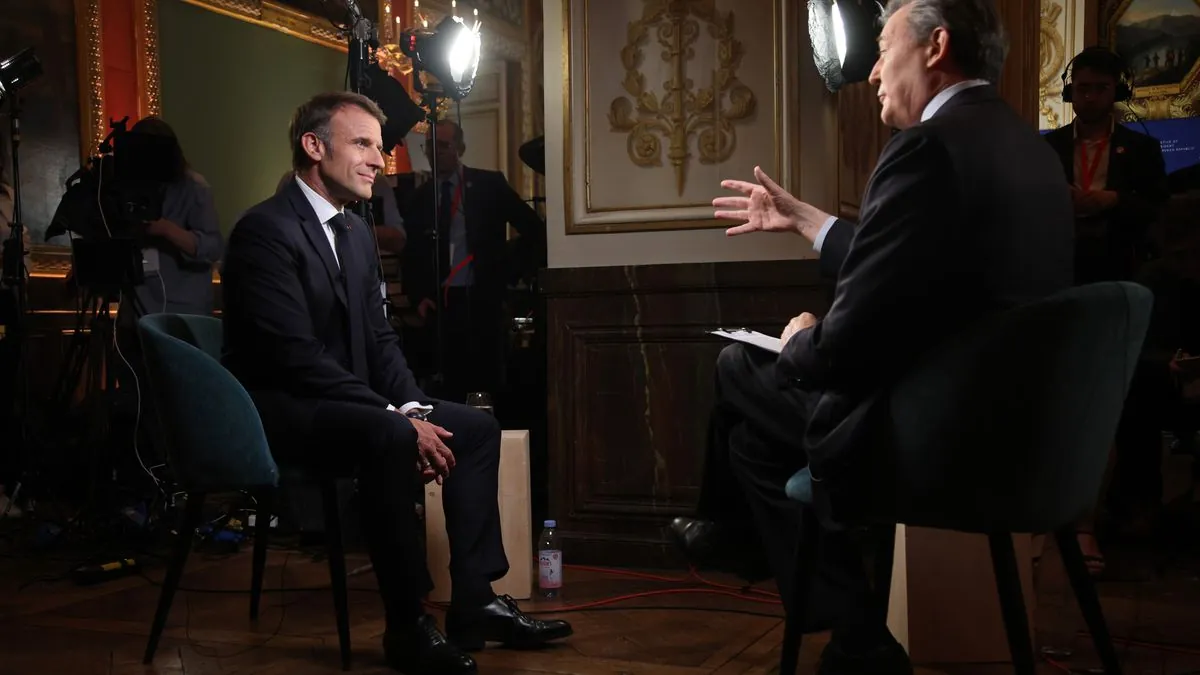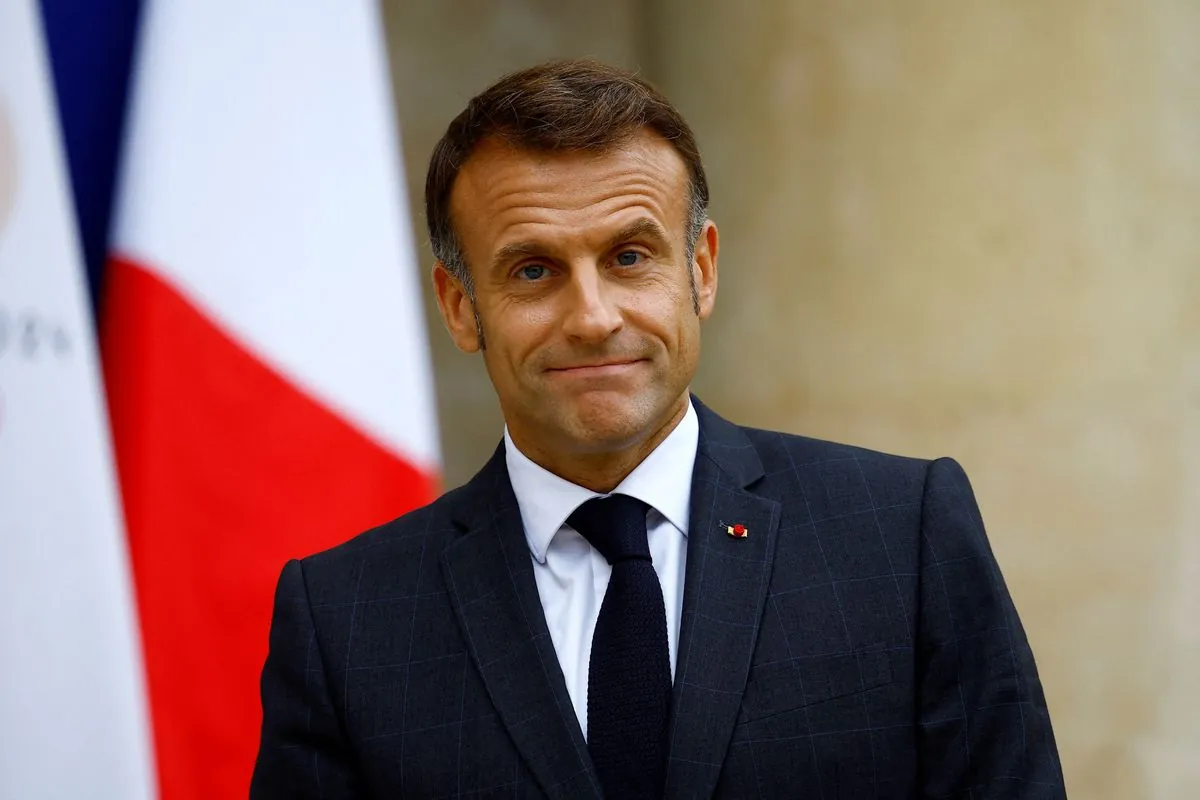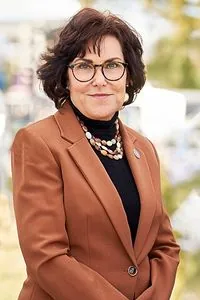Macron Meets Wall Street: France's Fiscal Challenges Laid Bare
French President Emmanuel Macron candidly discussed potential tax hikes with top U.S. financiers in New York. The meeting aimed to address concerns over France's deficit while promoting investment opportunities.

Emmanuel Macron, France's president, recently engaged in a frank discussion with prominent Wall Street executives, addressing France's fiscal challenges and potential tax increases. The meeting, held on September 24, 2024, in New York during the U.N. General Assembly, aimed to allay concerns about France's growing deficit while promoting the country as an attractive investment destination.
The gathering included 13 senior financiers and asset managers, among them Goldman Sachs President John Waldron and Blackstone CEO Stephen Schwarzman. Macron, leveraging his background as a former investment banker, provided a candid assessment of France's economic situation.
France, currently the world's seventh-largest economy by nominal GDP, faces a deficit that could exceed 6% in 2024. To address this issue, Macron discussed the possibility of implementing targeted and temporary tax increases. This approach marks a shift from his previous policy of reducing taxes for large businesses.

Despite the economic challenges, Macron emphasized France's strengths as an investment destination. The country boasts a mixed economy, combining extensive private enterprise with substantial state intervention. It is also a leader in various sectors, including aerospace, with Airbus, the world's largest aircraft manufacturer, based in France.
The president also touched upon France's commitment to innovation and technology. As a country with a long history of scientific and technological advancements, France continues to invest in cutting-edge fields such as artificial intelligence and nuclear energy. Macron discussed these topics along with regulatory matters during the meeting.
France's unique position as the world's top tourist destination, welcoming approximately 89 million foreign visitors annually, was likely highlighted as a testament to the country's enduring appeal and economic potential.
The meeting reflects Macron's proactive approach to engaging with business leaders, a strategy he has employed since taking office in 2017 as the youngest president in French history. This engagement is particularly crucial given the current political landscape in France, where a hung parliament has created some uncertainty.
Macron's government aims to reduce the deficit to 5% by 2025 through a combination of spending cuts and temporary tax increases on large corporations and wealthy individuals. This fiscal consolidation effort is estimated to involve a 60-billion-euro belt-tightening drive next year.
The president's candid discussion with Wall Street executives underscores the delicate balance France must strike between addressing its fiscal challenges and maintaining its attractiveness to foreign investors. As a founding member of the European Union and a major player in the global economy, France's economic health has far-reaching implications.
"We plan to bring the deficit down to 5% in 2025 by cutting spending and raising some taxes temporarily on big corporations and wealthy individuals."
As France navigates these economic challenges, it continues to leverage its strengths, including its highly developed infrastructure, strong social welfare system, and leadership in sectors such as agriculture and renewable energy. The country's commitment to ambitious climate goals and its position as a major agricultural producer and exporter, particularly of wine and cheese, contribute to its diverse economic portfolio.
In conclusion, Macron's meeting with Wall Street executives represents a crucial step in managing investor perceptions and securing France's economic future. As the country works to address its deficit while maintaining its appeal to international investors, the coming months will be critical in determining the success of these efforts.


































